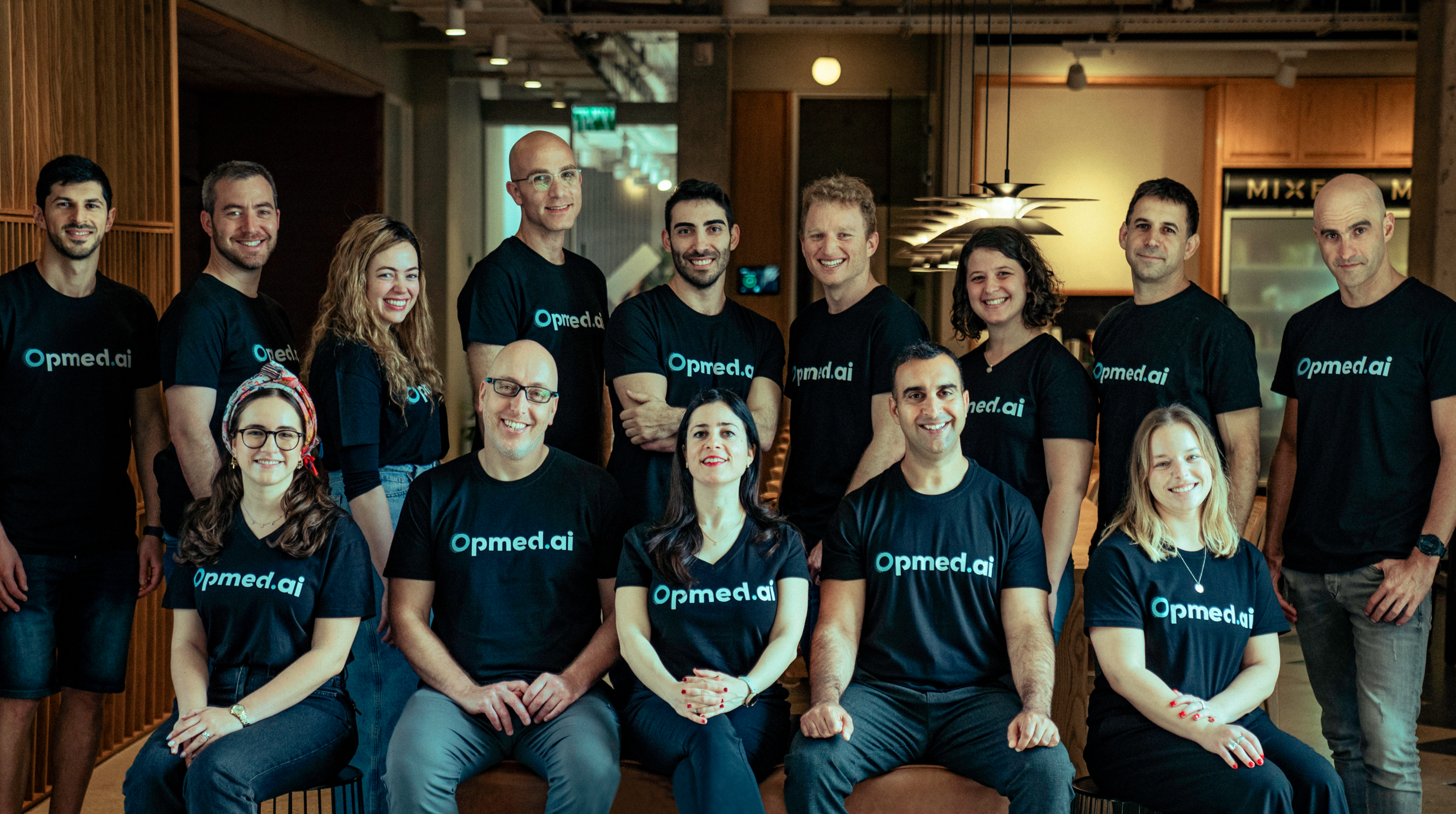Investing in Opmed.ai: Optimizing Healthcare Operations

Opmed.ai’s $15M financing led by Grove Ventures and NFX will help the AI company optimize healthcare operations, starting with Operating Rooms, which account for 40% of a hospital’s costs and generate 60-70% of its revenue
In the complex world of healthcare, where efficiency is the name of the game and every minute counts, the operating room (OR) is the beating heart of a hospital. It’s not only where lives are saved, but also where revenue is generated.
The numbers are astonishing: 70% of a hospital’s revenue comes from the OR, and it accounts for 40% of its expenses. ORs are not just the heart of a hospital; they’re also its financial backbone. When one minute of OR downtime translates to a loss of $50-$150 for a hospital, and empty ORs carry a cost of $1,000 for each unused hour, you can see why efficient scheduling is crucial. And yet, most hospitals still manage their ORs manually, using outdated spreadsheets and guesswork to schedule surgeries. If this sounds like a recipe for chaos, it’s because it really is.
Enter – Opmed.ai.
Opmed.ai specializes in optimizing healthcare operations, starting with ORs, through the application of advanced AI technology. The company’s optimization engine runs billions of permutations in seconds and makes predictions based on industry-specific factors, automatically generating alternative schedules that significantly improve resource allocation.
From Academia to Industry
Dr. Mor Brokman Meltzer, Avi Paz, and Prof. Baruch Barzel co-founded Opmed.ai—three visionaries with a deep understanding of the problem. Mor (Co-Founder and CEO) is a serial entrepreneur who earned her PhD from Bar-Ilan University on resource management and has previously worked for the Israeli Ministry of Defense. Avi (Co-Founder and CTO) was a senior developer and cloud architect at the health division at Microsoft R&D Center in Israel, and worked for EMC and PayPal, and Baruch (Co-Founder and Scientific Director) heads the Complex Network Dynamic lab at the mathematics department at Bar Ilan University. They bring unique expertise, ensuring that Opmed.ai is a force to be reckoned with.
AI-Powered Healthcare Optimization
So, what problem does Opmed.ai try to solve, specifically? Building an efficient, predictable, OR schedule a real challenge, which must consider a huge range of variables. OR operating procedure times vary between different surgeons; due to the use of different types of equipment; because of unexpected surprises; and more.
How does Opmed.ai work its magic? By analyzing vast amounts of data from multiple sources in record time, Opmed.ai detects over and under time estimations, accounts for variables like anesthesia time, and turnover time, and generates optimized alternative plans with just a few clicks. It’s like having a scheduling wizard in your pocket, ready to work miracles at a moment’s notice.
What Sets Them Apart?
But what truly sets Opmed.ai apart from the competition is its ability to provide proactive interventions. Unlike other automation tools in the market, Opmed.ai doesn’t just optimize OR capacity – it anticipates and responds to unforeseen delays or events, ensuring that hospitals remain resilient in the face of uncertainty. Imagine a crystal ball that can predict the future of OR scheduling—only better.
Opmed.ai’s few competitors will flag usable blocks in the schedule and send the hospital’s planner a notification so that they figure out how to use the spare minutes. Opmed.ai goes further, and not only highlights the inefficiencies, but also creates a completely new, optimized schedule with a single click of a button. No more puzzle work for anyone!
To appreciate the opportunity in Opmed.ai, you only need to look at the results: By implementing the Opmed.ai platform, hospitals can generate an additional $1 million or more per OR while reducing costs by half a million dollars annually. That’s not just a win-win – it’s a game-changer for the healthcare industry.
Opmed.ai’s impact doesn’t stop at OR optimization. With expansion opportunities abound in cath labs, human resources, and beyond, the sky’s the limit. With the healthcare labor shortage projected to hit 3.2 million professionals by 2026, the timing couldn’t have been better.
My ‘Oh No’ Moment, And Opmed.ai’s Transformative Tech
Every investor knows that first “oh, no!” moment only too well, when some bad news hits. With Opmed.ai, the day after the term sheet was signed, I woke up to read that the company’s biggest competitor had acquired the company’s second-biggest competitor – a pure “Oh, no!” moment. Different founders would have reacted differently to such news. The Opmed.ai founders met that challenge head on – went on a full-blown market research (worthy of an elite intelligence unit) and integrated that value into their solution, which is now stronger and much more comprehensive.
Opmed.ai’s journey is a testament to the transformative power of technology in healthcare. With visionary founders, groundbreaking AI technology, and unwavering commitment to efficiency, Opmed.ai is poised to revolutionize the way we think about efficiency and management in healthcare and ORs – one hospital at a time.